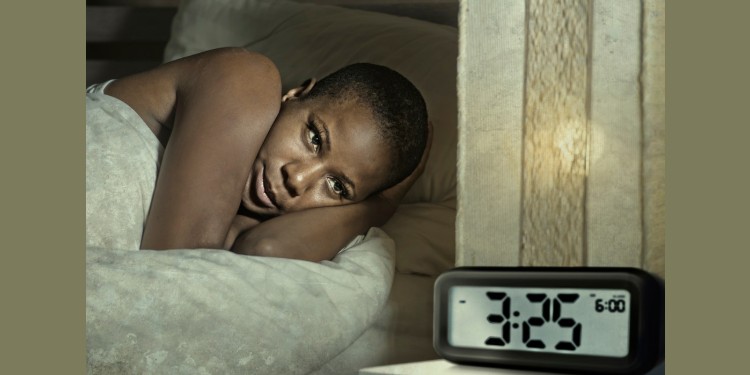Getting good sleep is something many of us take for granted. However, there are some people who are unable to get quality sleep due to various conditions known as sleep disorders. Sadly, this has the ability to affect other areas of their lives.
While it is normal to experience occasional inability to sleep, if sleep problems are a regular occurrence and interfere with your daily life, you may be suffering from a sleep disorder. They can take a serious toll on your mental and physical health, leading to memory problems, weight gain, and impacting your energy, and mood.
Sleep disorders are a group of conditions that affect the ability to sleep well on a regular basis. In some cases, sleep disorders can be a symptom of another medical or mental health condition. These sleeping problems may eventually go away once treatment is obtained for the underlying cause. When sleep disorders aren’t caused by another condition, treatment normally involves a combination of medical treatments and lifestyle changes.
So how can you tell if you have a sleep disorder?
Do you…feel irritable or sleepy during the day?
Or do you have difficulty staying awake when sitting still, watching television or reading?
Do you also fall asleep or feel very tired while driving?
Have you often had difficulty concentrating?
Or are there times people told you that you look tired? The symptoms could go on. It may be that you react slowly or have trouble controlling your emotions. It could also manifest as the strong desire to take a nap almost every day or a heavy dependence on caffeinated beverages.
If you answered yes to most of these questions, there is a chance you may have a sleeping disorder. However, it could also be that you are just bored and would rather sleep instead – in which case you should discuss the symptoms with your doctor.
There are quite a few sleep disorders, some of the more common and worrisome ones include:
Insomnia
This is the inability to get to sleep or sleep well at night. This can be caused by stress, jet lag, a health condition, certain medications or even excess consumption of coffee and caffeinated beverages. Insomnia can also be caused by other sleep disorders or mood disorders such as anxiety and depression.
Sleep Apnea
Sleep apnea is characterised by pauses in breathing pattern during sleep. These pauses in breathing deprive the body of much-needed oxygen and this is a serious medical condition. It can also lead to nighttime awakenings which may not be remembered.
Narcolepsy
Narcolepsy is a sleep disorder that involves excessive, uncontrollable daytime sleepiness. It is caused by a dysfunction of the brain mechanism that controls sleeping and waking. People with narcolepsy may have “sleep attacks” in the middle of talking, working, or even driving. This makes narcolepsy a dangerous sleep disorder. The disorder can also cause sleep paralysis, which may make you physically unable to move right after waking up. Although narcolepsy may occur on its own, it is also associated with certain neurological disorders, such as multiple sclerosis.
Parasomnias
Parasomnias are a class of sleep disorders that cause abnormal movements and behaviours during sleep. They include:
sleepwalking
sleep talking
groaning
nightmares
bedwetting
teeth grinding or jaw clenching
Circadian rhythm sleep disorders
The circadian rhythm is the original biological clock. It controls our sleep-wake cycle and is primarily influenced by light. At night, when there is less light, your brain triggers the release of melatonin, a hormone that makes you sleepy. When the sun comes up in the morning, the brain tells the body that it’s time to wake up.
When your circadian rhythms are thrown off for whatever reason, you may feel groggy, disoriented, and sleepy at inconvenient times. Circadian rhythms have been linked to a variety or sleeping problems and sleep disorders, as well as depression, bipolar disorder, and seasonal affective disorder (the winter blues).
Examples of disorders related to the circadian rhythm include:
Shift work sleep disorder
Shift work sleep disorder occurs when your work schedule conflicts with your biological clock. Many people have to work night shifts, early morning shifts, or rotating shifts. These schedules force you to work when your body is telling you to go to sleep and sleep when your body is signalling you to wake.
While some people adjust better than others to the demands of shift work, most shift workers get less quality sleep than their daytime counterparts. When there is sleep deprivation, you may struggle with sleepiness and mental lethargy on the job. This decreases productivity and increases the risk of injury.
Delayed sleep phase disorder
Delayed sleep phase disorder is a condition where your biological clock is significantly delayed. As a result, you go to sleep and wake up much later than other people. This is not just a preference for staying up late or being a night owl, but rather a disorder that makes it difficult for you to keep normal hours—to make it to morning classes, get the kids to school on time, or keep a 9-to-5 job.
People with delayed sleep phase disorder are unable to get to sleep earlier than 2 to 6 a.m. no matter how hard they try. When allowed to keep their own hours (such as during a school break or vacation), they are able to fall into a regular sleep schedule.
Delayed sleep phase disorder is most common in teenagers, and many teens will eventually grow out of it.
Hopefully, this has helped shed some light on sleeping disorders and has helped you identify if you may have a sleeping disorder or not. The good news is that there is help available, some of which I will share in subsequent articles.
